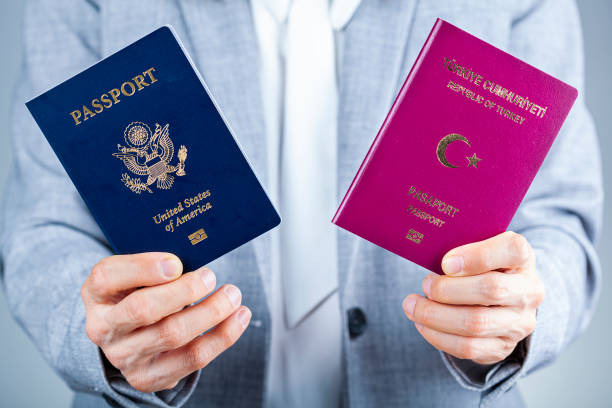Exploring the Dynamics of Dual Citizenship
In our increasingly interconnected world, the concept of citizenship has become more fluid than ever before. Dual citizenship, also known as dual nationality, is a phenomenon that allows individuals to hold the citizenship of two countries simultaneously. This unique status presents a plethora of opportunities, challenges, and implications, both for the individuals involved and the societies they belong to. In this article, we delve into the complexities of dual citizenship, examining its benefits, legal frameworks, cultural implications, and the broader impact on global citizenship.
Understanding Dual Citizenship
Dual citizenship occurs when an individual is recognized as a citizen by two different countries. This can happen through various means, such as birth in a country that grants citizenship based on soil (jus soli) and having parents who are citizens of another country, or through naturalization processes in two different nations. Some countries allow dual citizenship by default, while others restrict or prohibit it altogether.
Benefits of Dual Citizenship
One of the primary benefits of dual citizenship is increased mobility. Dual citizens have the freedom to travel, live, and work in either of their two countries without the need for visas or work permits. This can be particularly advantageous for individuals with career opportunities or familial ties in both countries. Additionally, dual citizenship offers a sense of belonging to multiple communities, allowing individuals to maintain strong cultural, familial, and emotional connections to both countries of citizenship.
Legal Frameworks and Challenges
The legal framework surrounding dual citizenship varies significantly from one country to another. While some nations fully recognize and embrace dual citizenship, others impose restrictions or even penalize citizens who acquire a second citizenship without permission. Navigating the legal complexities of dual citizenship can be daunting, requiring individuals to understand the laws of both countries involved and potentially seek legal counsel to ensure compliance.
Challenges may arise in areas such as taxation, military service obligations, and eligibility for government benefits. For instance, dual citizens may be subject to taxation laws in both countries, leading to potential double taxation. Likewise, some countries require mandatory military service for citizens, which could pose dilemmas for dual citizens with obligations to two nations. Moreover, eligibility for social welfare programs and voting rights may vary depending on the country of residence and citizenship.
Read More: Unlocking the Doors to Opportunity: The Green Card Journey
Cultural Identity and Integration
Dual citizenship often raises questions about cultural identity and integration. While some individuals embrace and celebrate their multicultural heritage, others may struggle with feelings of displacement or identity confusion. Balancing the customs, traditions, and languages of two cultures can be enriching but also challenging, particularly for children growing up in multicultural households.
Furthermore, the integration of dual citizens into the social fabric of their respective countries can vary widely. Some may seamlessly navigate between their two cultural identities, while others may encounter discrimination or barriers to acceptance. Education, awareness, and inclusive policies play crucial roles in fostering an environment where dual citizens feel valued and accepted within both of their communities.
Global Citizenship and Diplomacy
Dual citizenship underscores the concept of global citizenship, emphasizing the interconnectedness of people across borders. In an era marked by globalization and transnational challenges, individuals with dual citizenship serve as bridges between nations, fostering cultural exchange, understanding, and collaboration.
Moreover, dual citizens can play instrumental roles in diplomatic efforts, leveraging their connections and understanding of multiple cultures to facilitate communication and negotiation between countries. Their unique perspective and ability to navigate diverse cultural contexts make them valuable assets in promoting peace, cooperation, and mutual respect on the global stage.
Conclusion
Dual citizenship is a multifaceted phenomenon that reflects the complexities of our interconnected world. While it offers numerous benefits, it also presents legal, cultural, and societal challenges that must be navigated with care and consideration. By understanding the dynamics of dual citizenship and embracing its potential for fostering global citizenship and diplomacy, we can harness its power to build bridges between nations and promote a more inclusive and interconnected world.








[…] Read More: Exploring the Dynamics of Dual Citizenship […]